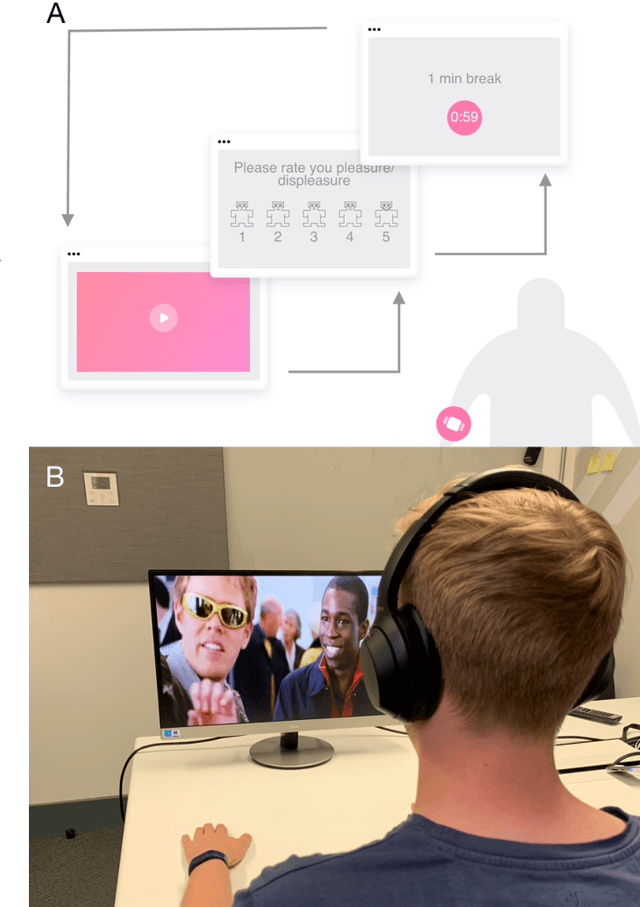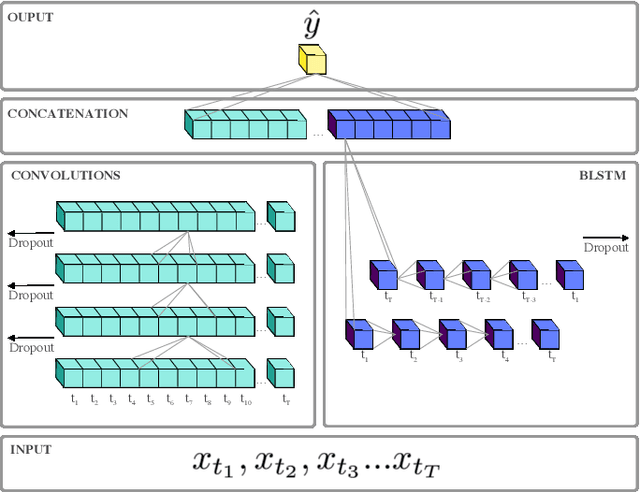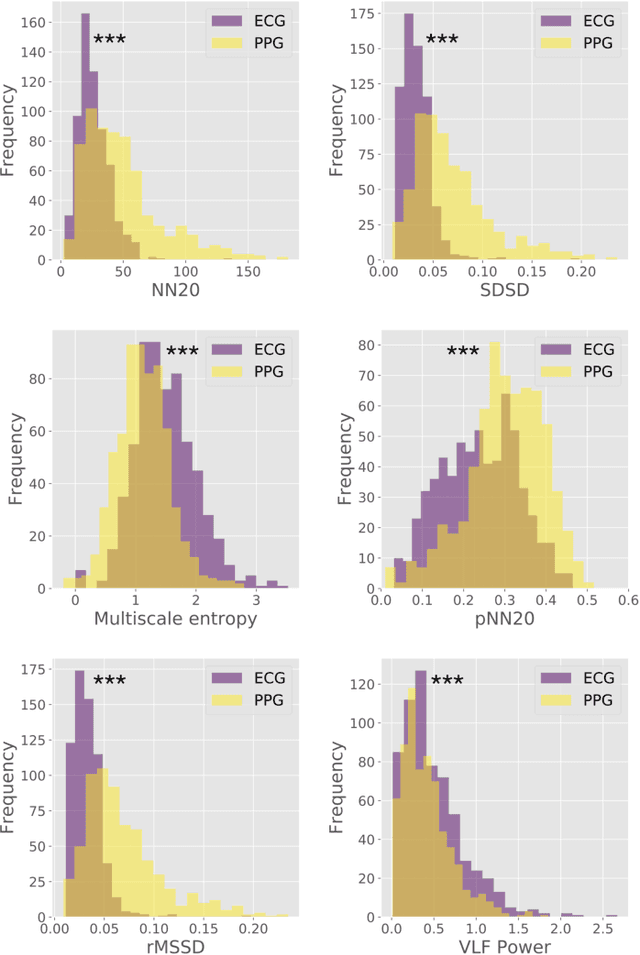End-To-End Prediction of Emotion From Heartbeat Data Collected by a Consumer Fitness Tracker
Paper and Code
Jul 16, 2019



Automatic detection of emotion has the potential to revolutionize mental health and wellbeing. Recent work has been successful in predicting affect from unimodal electrocardiogram (ECG) data. However, to be immediately relevant for real-world applications, physiology-based emotion detection must make use of ubiquitous photoplethysmogram (PPG) data collected by affordable consumer fitness trackers. Additionally, applications of emotion detection in healthcare settings will require some measure of uncertainty over model predictions. We present here a Bayesian deep learning model for end-to-end classification of emotional valence, using only the unimodal heartbeat time series collected by a consumer fitness tracker (Garmin V\'ivosmart 3). We collected a new dataset for this task, and report a peak F1 score of 0.7. This demonstrates a practical relevance of physiology-based emotion detection `in the wild' today.
 Add to Chrome
Add to Chrome Add to Firefox
Add to Firefox Add to Edge
Add to Edge